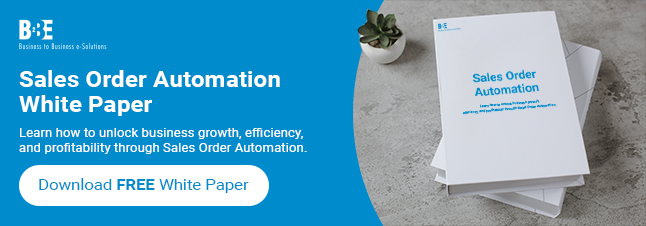Order fulfilment plays a critical role in the order to cash fulfilment process, ensuring that customers receive their orders accurately and on time. Inefficiencies in this stage can lead to delayed deliveries, stockouts, and dissatisfied customers, ultimately impacting cash flow and profitability.
Businesses looking to optimise this process need to focus on accuracy, automation, and supply chain efficiency.
What Is Order Fulfilment in Supply Chain Management?
Order fulfilment is the process of receiving, processing, and delivering customer orders. It involves multiple steps, including order entry, inventory management, picking and packing, shipping, and final delivery. As part of the order processing cycle, this stage directly impacts customer satisfaction and revenue generation.
For businesses using manual processes, fulfilment can become a bottleneck due to human errors, inventory mismanagement, and delayed shipments. In contrast, an optimised order fulfilment process with automation and real-time data tracking ensures faster deliveries and improved accuracy.
How to Improve Order Fulfilment
1. Automate Order Processing
Implementing an automated order management system reduces processing time and minimises errors. Integration with an ERP system ensures seamless data flow between sales, inventory, and logistics.
2. Enhance Inventory Visibility
Real-time inventory tracking improves order fulfilment by preventing stockouts and overstocking. Using demand forecasting tools can help businesses manage stock levels more efficiently, ensuring the right products are available when needed.
3. Optimise Warehouse Operations
Efficient warehouse layout and automated picking systems (such as barcode scanning or RFID technology) can significantly speed up the fulfilment process. Reducing manual intervention also improves accuracy.
4. Strengthen Supplier and Carrier Relationships
Reliable suppliers and logistics partners play a crucial role in order fulfilment. Establishing strong partnerships ensures faster replenishment of stock and timely deliveries to customers.
5. Improve Order Accuracy with Data Integration
Connecting sales channels, order management systems, and logistics platforms allows businesses to verify orders automatically, reducing the risk of errors and improving overall efficiency.
6. Offer Multiple Shipping Options
Providing customers with flexible delivery options, including express shipping, local distribution hubs, or click-and-collect, can improve satisfaction and ensure faster order fulfilment.
Why Is Order Fulfilment Important?
Efficient order fulfilment directly impacts cash flow and customer retention. A well-optimised fulfilment process leads to:
- Faster Order Processing: Automated workflows speed up order approval, packing, and shipping.
- Reduced Errors: Digital verification reduces mis-shipments and improves accuracy.
- Lower Costs: Optimising inventory and logistics minimises unnecessary expenses.
- Improved Customer Experience: Reliable and timely deliveries build customer trust and encourage repeat business.
Businesses that prioritise efficiency can enhance their fulfilment process, reducing delays and unlocking new revenue opportunities. Investing in automation and supply chain improvements ensures a smoother path from order placement to final delivery, strengthening overall business performance.
Learn more about B2BE’s Order To Cash solutions, including Sales Order Automation, B2B E-Catalog, and Accounts Receivable.
About B2BE
B2BE delivers electronic supply chain solutions globally, helping organisations to better manage their supply chain processes, providing greater levels of visibility, auditability and control. We’re driven by a passion for what we do, inspired by innovation, and underpinned by a wealth of knowledge. With over 20+ years of experience, the B2BE teams operate worldwide.
For more information, visit www.b2be.com.

